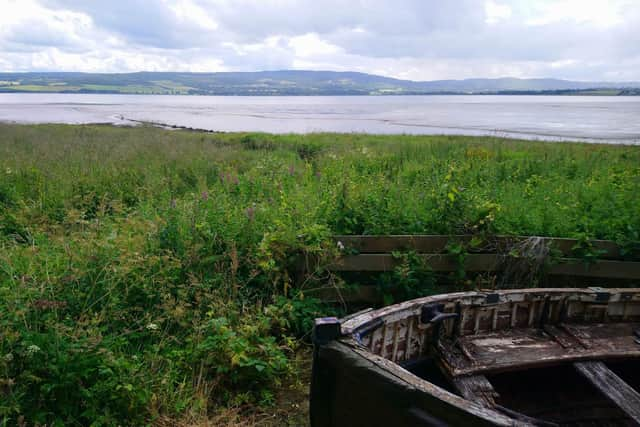The 'dynamic' Highlands that emerged in the 100 years before Culloden
Professor David Worthington, head of the Centre of History at University of the Highlands and Islands, said he wanted to “challenge the assumption” the Highlands existed in a vacuum before the 18th century and was sealed off from the rest of the world.
The professor draws on the manuscripts of Reverend James Fraser, a Gaelic-speaking scholar, traveller and minister from Phopachy near Inverness, to show a “cosmopolitan and scholarly” breed of Highlander of the time.


Advertisement
Hide AdAdvertisement
Hide AdRev Fraser, who studied at Aberdeen University, travelled through France, Spain, Italy, Bohemia and Hungary in his 20s in a bid to “view this universe”, learning several languages on the way.
Details of his life have emerged in an original publication of one of his works, the Wardlaw Manuscript, which is held in the National Library of Scotland. It was reprinted in 1905, but without the international context.
Prof Worthington said: “Fraser is such a rich resource. He gives us a very powerful insight as to what the Highlands was like and there is very little written by anyone else from the Highlands of the time, in such quantity.
"I think it provides a very different perspective on the Highlands at that time.
“People used words like traditional and conservative to describe the Highlands and this is, in a sense, right. But it was also dynamic, resilient and entangled in the outside world. It was finding its own path to modernity.”
Rev Fraser picked up English from Oliver Cromwell’s soldiers stationed in Inverness in the 1650s and later, ahead of his travels, collected his testimonial and passport from the garrison.
On his travels he learned Basque, Hungarian and Czech and produced 50 manuscripts over his lifetime.
Prof Worthington said: “Fraser writes about the Ottoman Empire, events in China, the Caribbean. He was completely outward facing.
Advertisement
Hide AdAdvertisement
Hide Ad"He was completely engaged in the Stuart kingdoms, in Europe and the rest of the world. He looked out to the North Sea and he wanted to be connected, he wanted to be part of a global network.”
While a number of Highlanders left the north of Scotland in the 17th century to make their fortune from slavery and the sugar plantations of the former Dutch colony of Suriname in South America, Rev Fraser – apart from his stint travelling and studying – spent all his life at home.
Prof Worthington said: “Generally, Highland people have had to go to Glasgow, to Edinburgh, to London, or beyond, to succeed.
"In the Highlands, for 200 to 300 years, people were told that where they were from was a problem and that they probably would have to leave in order to make a life. People aren’t prepared to put up with that any more.”
He said events after Culloden, from mass emigration, clearance and depopulation, meant that the possibilities created in the Highlands before the 1745 Rising were often overlooked.
Prof Worthington added: "From the 18th century, it’s a rather gloomy narrative, one that is, correctly, dominated by Clearance and depopulation. People don’t think often enough about what a successful Highlands might have looked like.”
Professor Worthington’s inaugural lecture, Re-Presenting Rev. James Fraser (1634-1709): The Scottish Highlands and Europe in the Century Before Culloden, will be held on Thursday, September 30 at 4pm. To book a place at the online event, visit www.uhi.ac.uk.
Comments
Want to join the conversation? Please or to comment on this article.
